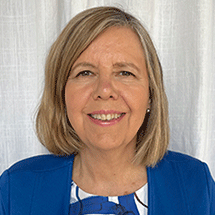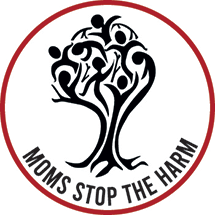2022 Honorary Awards
Each year, we honour individuals or organizations who provide outstanding service to their community and profession. Our members nominate candidates for the awards.
R.D. Defries Award
Benita Cohen (posthumous)
Dr. Benita Cohen, a fierce advocate for health equity and social justice, was a thoughtful and collaborative member of both the Manitoba Public Health Association (MPHA) and the Canadian Public Health Association (CPHA) as well as a Chair of CPHA’s Board of Directors. She was an Associate Professor in the College of Nursing at the University of Manitoba where she focused on mentoring students to become health equity champions. Her research projects included exploring public health nurses' role in addressing child and family poverty; an equity scan of Canadian tobacco control policy; a health equity impact assessment of a provincial parenting program; development of a conceptual framework of organizational capacity for public health equity action; and a systematic review of public health's role in advocacy for health equity. Benita received the 2013 Community Health Nurses of Canada Award of Merit for her contributions to the field of public/community health. MPHA, CPHA and many other organizations and individuals benefited from her commitment to advancing health equity through public health practice. As Chair of CPHA’s Board, she worked to strengthen public health system capacity to promote health equity and social justice. Benita was intentional in her collaboration with others, bringing people together to share their gifts in the pursuit of creating the conditions and structures for health equity. She was a researcher, teacher, mentor, and friend who will continue to inspire our efforts. Though Benita passed away on November 17, 2021, her quiet ways and persistent determination that we can and should do better will live on.
Ron Draper Health Promotion Award
Pegeen Walsh

Pegeen Walsh has promoted the health of Canadians of all ages and population groups over her stellar 43-year career in leadership roles in provincial and federal governments as well as the non-profit sector in health promotion and public health. Some examples of her contributions include: facilitating the creation and launch of Canada’s first National AIDS Strategy; overseeing renewal of health promotion standards within the Ontario Public Health Standards; designing and launching Ontario’s first Diabetes Prevention Strategy; and contributing to the creation of Canada’s International Youth Year program. Pegeen launched Aboriginal HeadStart, prenatal nutrition and community child development programs in Ontario with community and off-reserve Indigenous partners that continue to benefit children and their families. She facilitated an inter-ministerial team that secured funding for Ontario’s first Aboriginal Healing and Wellness Strategy as well as implemented the nutritional components of Ontario’s first Healthy Eating and Active Living Plan. Pegeen oversaw community-based health promotion programs and supported networks dealing with seniors, elder abuse, injury prevention and HIV/AIDS. By sharing her knowledge and passion for health promotion through a bridging program for international medical graduates, she facilitated their transition into new careers. She oversaw the launch of a communications campaign that increased public awareness about the health impacts of climate change on children and collaborated with others to embed health promotion in policy and legislation. Throughout her career, Pegeen has been guided by the elements and values of the Ottawa Charter for Health Promotion and her experience in the Health Promotion Branch formerly managed by Ron Draper.
Certificate of Merit
Regan Murray

Regan Murray is an epidemiologist and Public Health Officer with the Public Health Agency of Canada, and has worked with the Office of the Chief Coroner of Ontario (OCC) since 2017. When Regan began at the OCC, opioid-related mortality records were paper-based and not regularly collated. In response to the growing opioid overdose epidemic, Regan coordinated a comprehensive, high-quality electronic opioid mortality reporting system for Ontario, the largest in the world, which has informed the development of other similar systems across the country. Regan has worked with stakeholders, including people who use drugs and local public health and community agencies to mobilize information on opioid-related deaths to support prevention and response activities. Since the establishment of this system, every project, policy, publication, or program developed in Ontario that includes opioid-related mortality data has benefited from Regan's work. She collaborated with Public Health Ontario to share some of these data through an online tool and in quarterly reports to public health agencies. Regan acknowledges the real impact of opioid-related mortality on family, friends, and communities in all her work. Her ability to make real the OCC's motto "We speak for the dead to protect the living" has resulted in a wider appreciation of the public health and safety role of the death investigation system, leading to the development of a new Death Analytics for Safety and Health Unit at the OCC. Regan is the recipient of this Certificate of Merit to recognize her fundamental role in data-driven responses to the opioid epidemic.
National Public Health Hero Award
Moms Stop the Harm

Moms Stop the Harm (MSTH) is a national organization representing Canadian families who have been directly impacted by substance use-related harms and deaths. This grassroots organization advocates for changes to population-level drug policies while providing community-based peer support to Canadians who have lost a family member or are supporting a loved one currently struggling with substance use. Since its beginning in 2016, MSTH has grown to include over 3500 members across Canada as the impact of Canada’s drug poisoning crisis has continued unabated. Members advocate locally, nationally and internationally for implementing evidence-based public health and human rights responses to drug use and drug poisoning deaths. They have worked tirelessly to bring about changes to the policies and laws that have discriminated against and caused tremendous harms to people who use drugs. Their advocacy includes support for public health and harm reduction initiatives (e.g., supervised consumption services), evidence-based treatment, decriminalizing the personal possession of drugs, and the provision of a safe and regulated supply of substances for people who use drugs. Members have dedicated countless hours of unpaid time to meet with politicians, consult with advisory groups at all levels of government, organize political rallies and petitions, deliver community presentations, and participate in media interviews to help elevate public understanding and support for a public health and human rights approach to drug policy. As an organization, MSTH exemplifies community-based health promotion, inclusion, and advocacy for policy change that is at the heart of equity-driven public health.
